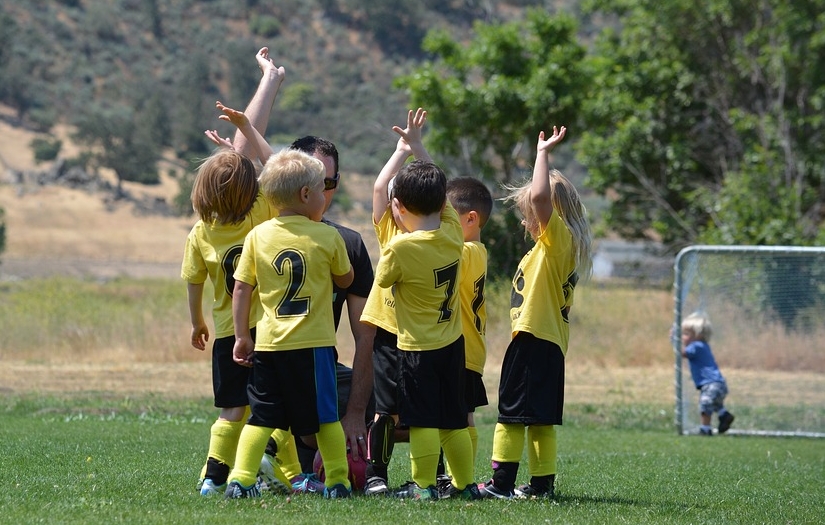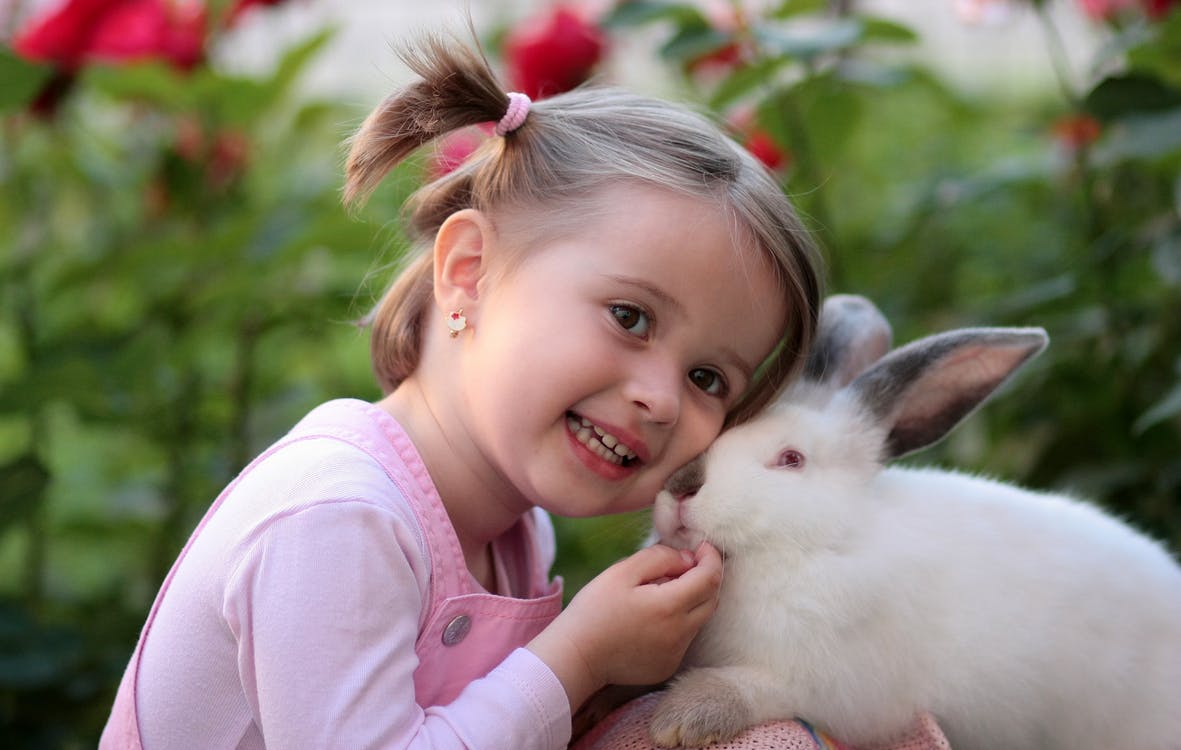....
Wer hätte das gedacht, dass man sogar falsch loben kann !! Uns hat man doch gelehrt, dass Lob wichtig für den Selbstwert und für die Leistungsfähigkeit ist, nicht wahr ? Ja, was ist jetzt wahr ? Zudem gehört Lob und Anerkennung zu den fünf Liebessprachen (BLOG) !
..
Who would have thought it possible to make a mistake in giving a compliment? I always thought words of affirmation were important for building self-confidence and raising achievement levels! That’s what I was taught, anyway. Besides that, praise and words of affirmation are accepted ingredients in the recipe called the Five Love Languages (BLOG)! So, what is the truth?
....
....
Lob als Interaktion
Ich schlage Ihnen, lieber Leser, vor, den ersten Teil dieses Themas (siehe BLOG) vorgängig zu lesen, damit Sie diesen zweiten Teil auch im richtigen Kontext verstehen können.
Loben wird als eine Aktion zwischen verschiedenen Menschen verstanden. Dabei muss es allerdings nicht bleiben. Auch ein gesunder Lebensstil oder ein erfolgreiches Geschäftsleben kann zu innerem Lob und zu innerer Anerkennung führen (Selbstlob).
Jetzt aber geht es um die Kinder, also um wichtige Menschen, denen die Zukunft gehört. Sie brauchen spezielle Sorgfalt und Weisheit, Weitsichtigkeit in Erziehung und Belehrung. Da sind wir Erwachsene sehr herausgefordert. Beginnen wir tief drinnen, beim Selbstwert des Kindes.
Das Selbstwertgefühl ist entscheidend
Früher hat man an einen einfachen Zusammenhang von Lob und Selbstwertgefühl geglaubt. Je mehr loben, desto grösser wird das Selbstwertgefühl. Das hat vor allem in den USA viele dazu gebracht, zu meinen, sie seien genial und es sei an der Welt, sie endlich zu entdecken. Vielleicht hat das einen Zusammenhang mit der Schwierigkeit von Lehrern, ihren Kindern noch etwas beizubringen. Diese wissen oft nicht mehr, wie man sich anstrengen soll, um etwas zu erreichen. Gerade ein übersteigertes Selbstwertgefühl kann diese Folgen haben, Auch dazu gehört die Tendenz zu Alkoholmissbrauch und Gewalt.
Leider gibt es immer mehr vernachlässigte Kinder, die ihre Tage vor dem Fernseher oder mit dem Smartphone verbringen, oft wie ihre Eltern, und damit verantwortungslos in die Welt hinaus leben. Man kann annehmen, dass die BRAVO-Grossartig-Rufe der Eltern und Grosseltern beim damals Dreijährigen beim Rutschbahn rauf- und runterfahren ihre Spuren hinterlassen haben, zumal er dasselbe schon als Einjähriger problemlos schaffte.
Aber zum Glück gibt es auch Eltern, bei denen man schon am Tonfall hört, dass sie vernünftig, kontrolliert, liebevoll, kaum laut und verständnisvoll mit ihren Kindern kommunizieren.
Eine Katze wird nie bellen
Manche Eltern stecken so viel Ehrgeiz und Erwartungen in ihre Kinder, dass daraus grosser Erfolgsdruck resultiert. Viele Eltern loben ihr Kind, damit es bessere Leistungen erbringt. Denn nur dann sind sie mit Stolz (auf sich selbst und das Kind) erfüllt. Es geht dabei nicht darum, den Kindern zu helfen, glücklich zu werden, sondern erfolgreich. Gerade auf Perfektionismus getrimmte Kinder leiden später darunter.
Daher ist es wichtig zu lernen, das Kind so anzunehmen, wie es ist und nicht daraus eine Leistungsmaschine zu formen. Man bringt eine Katze nie zum Bellen !
Sind denn die Kinder auf die Welt gekommen, um die Ansprüche der Eltern zu erfüllen oder umgekehrt ?
Wir Eltern und Erzieher sind also herausgefordert, unsere Erwartungen zu überprüfen. Unsere Bemühungen für die Kinder soll dem Entwicklungsstand entsprechen und wenn Enttäuschungen auftauchen, diese nicht spüren zu lassen, sondern zielgerichtet weiter zu motivieren.
..
Praise as Interaction
In order to really understand today’s blog in its context, I would encourage you to first read Praiseworthy Praise Part 1 from last week's BLOG.
Praise is understood as an action between individuals, but that's not all. A healthy lifestyle or a successful professional life can also create an inner sense of praise and recognition (self-worth) in us.
For the moment, let us turn our attention to our children, the important people of the future. Special care and attention, wisdom and farsightedness are needed in their education and training. This is a huge challenge for us as adults. Let us begin deep inside the heart of a child, where self-worth begins.
Feelings of Self-Worth Make a Difference
We used to believe there was a simple relationship between praise and feelings of self-worth: the more praise, the greater the feeling of self-worth. However, when a child is praised for acts that should be normal, like finishing his or her homework or drying the dishes at the age of 12, it can have the opposite effect.
This type of misplaced praise can lead children to set low goals. They think of themselves as brilliant and feel no need to develop further. These children don’t learn how to struggle and strive to achieve their goals. This attitude also makes life difficult for teachers. An overdeveloped sense of self-worth can not only destroy a child’s desire and ability to learn, it can also increase the tendency toward substance abuse and violence.
There are unfortunately more and more neglected children who spend their days in front of the TV or with their Smartphones (often like their parents) oblivious of any feelings of responsibility. We can assume the fan club mentality manifested by their parents and grandparents left its mark, continually applauding them for actions they had mastered more than a year earlier. A growing sense of complacency replaced their natural inclination to strive for more.
Fortunately, there are also parents who communicate with their children in a thoughtful and controlled tone: sensible, soft and loving.
Cats Never Bark
Some parents are so ambitious and have such high expectations in raising their children that enormous pressure is created for the child. Many parents praise their children in order to increase their performance. Their motivation is really their own pride: they only feel proud of their child and of themselves when their child is successful. They are not thinking of how to help the child to be happy, but how to achieve success. Many children who are trained to be perfectionists suffer with these expectations later in life.
Therefore, it is important to accept each child as he or she is and not try to remake him or her into a model for our desired list of achievements. A cat will never learn to bark!
Do children come into the world to meet their parents’ needs, or is it the other way around?
As parents and educators, we are challenged to analyze our expectations. In our efforts to help our children develop, we must always be aware of their developmental stage. When defeat comes, we should not let them feel our disappointment, but continue to motivate them with goal-oriented encouragement.
....
....
Ein Kind ist dann mit sich im Reinen, wenn es das geleistet hat, was seinen Möglichkeiten entspricht, also wenn es nicht über- oder unterfordert wurde. Dabei ist es für Erzieher wichtig, sich nicht so sehr für deren Schwächen zu interessieren, sondern die Stärken miteinzubeziehen.
..
Children are always happy with themselves when they have accomplished something that matches their abilities, that is, when they are not over or under challenged. In this process, it is important that the educator concentrate more on the child’s strengths, giving less attention to weaknesses.
....
....
Aber noch wichtiger als das richtige Wort zur richtigen Zeit ist die eigene Grundhaltung den Kindern, dem Partner, dem Leben und nicht zuletzt sich selber gegenüber.
Also wer merkt, dass er nur noch mit Verboten und Befehlen kommuniziert oder mit Machtkämpfen versucht, Struktur zu erhalten, dann ist ein Besuch des Spiegels dringend notwendig.
Gefährlicher Gehorsam
Gehorsam um jeden Preis, das ist eine gefährliche These. Obwohl Kinder, die gelernt haben, Grenzen und Regeln, die auf vernünftigen Prinzipien gebaut sind, einzuhalten, also gehorsam sind, darf dies nicht auf Kosten der Bindung und Wertschätzung geschehen. Liebe und keine Frustration sollte die Basis für Disziplin sein. Negativ eingesetzt kann Lob und Belohnung genau so schlimm sein wie Strafe. Nur subtiler. Sie können eine Form von als Güte und Grosszügigkeit bemäntelte Gewalt oder Manipulation sein. Du bist geliebt, wenn du gehorchst. Siehe Bedingte Liebe - BLOG.
Man weiss heute, dass Kinder, die ohne Disziplin, also im LAISSER FAIRE - Stil (antiautoritär) aufgewachsen sind, als Erwachsene grosse Beziehungsprobleme bekunden, während diejenigen Kinder, bei denen ein NEIN ein NEIN geblieben ist, also die Grenzen schätzen gelernt haben, im Erwachsenenalter glückliche Beziehungen pflegen können. Liebevolle Autoritäten sind immer noch notwendig und werden von den Kindern hoch geschätzt.
Gefährlicher Stolz
Lob löst sehr viele Gefühle aus. Das erkennt man daran, dass sogar Erwachsene mit einem ernst gemeinten Lob nicht so recht umgehen können. Man ist in solchen Situationen peinlich berührt, sprachlos oder errötet. Daher sollte bereits im Kindesalter gelernt werden, wie man mit solchen Situationen umgeht. Die eigenen Gefühle richtig auszudrücken oder wahrzunehmen ist eine wichtige Grundlage für das spätere Leben. Anhand von richtigem Lob können Eltern ihre Kinder dabei unterstützen.
"Wo Stolz ist, da entstehen auch Probleme", sagte der weise Salomo. Kann Loben den Stolz fördern ? Sicherlich. Loben, das personengerichtet ist - zum Beispiel, wo jemand direkt mit 'DU bist/kannst' angesprochen wird - hat einen direkten Einfluss auf das EGO. Wenn das häufig passiert, dann entwickelt sich Stolz.
Daher wird angeraten, das 'DU' wegzulassen und möglichst nur die Sachebene zu loben.
Also nicht: "DU kannst dann schön zeichnen.", sondern: "Diese Zeichnung gefällt mir sehr gut.". Damit wird die Aufmerksamkeit auf die Sache, das Tun, die Leistung gelenkt und nicht auf die Person direkt.
Es gibt Temperamente, vor allem das Melancholische (BLOG), das auf das 'DU'-Lob meist abweisend reagiert. Dort empfiehlt man, nur die Sachebene zu loben. Das erleichtert die ganze Kommunikation.
..
More important than speaking the right words at the right time is having the right attitude toward one’s child, spouse, life and self.
So, if a parent or another person in authority notices his or her communication consists mostly of prohibitions and commands, or trying to keep a semblance of order through power struggles, then it’s high time to take a look in the mirror.
Dangerous Discipline
Obedience at any cost is a risky rule. Although children who learn to live within limits and rules that are based on sensible principles are generally much happier than those who don’t, this obedience must never be achieved at the cost of relationship. Love must always be the undisputed basis for every act of discipline. If love is missing, or if a child does not FEEL unconditionally loved, praise and rewards can be just as devastating as punishment, just more subtle. They can actually be a form of abuse and manipulation disguised as goodness and generosity. The message conveyed says, “You are loved when you obey.” See conditional love - BLOG.
Today we know that many children who grow up without discipline, in the laissez faire – style, report having big problems in relationships as adults. On the other hand, children who learned that NO meant NO and experienced the presence of defined boundaries were able to enjoy happy relationships as adults. Loving authority is still an absolute necessity that children highly appreciate.
Perilous Pride
Praise can cause many different feelings and reactions. This becomes clear when we see how hard it is, even for adults, to deal with sincere compliments. In such situations, we see embarrassment, speechlessness and blushing. For this reason, it would be a good idea for children to be taught how to deal with praise at a young age. Being able to recognize and express one’s own feelings is an important foundation for other skills needed later in life. Parents can encourage these basic skills in children by implementing praise properly.
Wise King Solomon once said, "Pride causes problems." Can praise cultivate pride? Certainly. Praise that is aimed directly at a person has a direct influence on his or her ego, for example saying, “YOU’re so beautiful, strong, or nice!” or “YOU’re such a good cook, driver or artist.” When these kinds of compliments are often repeated, pride is nurtured.
Consequently, it is better to leave the word “you” out and compliment actions and products rather than the person who did or produced them. So, instead of, “You can draw so nicely!” we would better say, “I really like that drawing!” In this way, attention is drawn to the object, the product or the accomplishment, rather than to the person directly.
Some temperaments, especially melancholies (BLOG), react quite adversely to compliments directed at them personally. With them, it is especially recommended to stay at the objective level and avoid “you” compliments. This will make communication easier for all concerned.
....
....
Mit Erfolg und Misserfolg umgehen lernen ist beides eine grosse Herausforderung. Gewinnen und verlieren können kann beim Spielen mit guten Vorbildern gelernt werden.
..
Learning how to handle both successes and failures can be very challenging. Having good role models for how to deal with winning and losing games can be very helpful in learning those skills.
....
....
Leistungsangst
Wenn ein Kind bei einer Herausforderung immer wieder aufgibt, dann zeigen wir unsere Freude, wenn es wenigstens einen Teilerfolg erzielt hat. "Schön, dass du nicht aufgegeben hast, sondern es nochmals probiert hast." "Das gefällt mir, dass du länger dran geblieben bist, trotz der Schwierigkeiten." "Bravo, dass du es trotzdem immer wieder versuchst."
Problematisch wird es, wenn wir es für seine Begabungen loben. Die Intelligenz, die Talente zu loben, ist gefährlich. Es sollte nicht auf ein Podest gehoben werden. Damit würden wir ihm nämlich mitteilen, dass Leistung und Talente angeboren sind. Man hat es oder eben nicht. Das kann bei einigen Kindern zu Leistungsangst führen, Angst, Fehler zu machen, weil ein Fehler dann ein Zeichen von Dummheit und Unvermögen darstellte.
Kinder richtig loben - 7 Punkte
Wir alle brauchen Lob und Anerkennung - und unsere Kinder ganz besonders! Durch Lob verstärken Eltern Positives bei ihren Kindern. Unsere Kinder lernen anhand von Lob. Lob gehört bei einer guten Erziehung einfach dazu. Sich gegenseitig loben und die Kinder mit positiven Worten zu motivieren, stärkt das Selbstbewusstsein und das Familienleben.
1. Vernünftiges Loben
Lob sollte nur dann erteilt werden, wenn auch guten Grund dafür besteht. Wird ein Kind wegen jeder Kleinigkeit und wegen Leistungen gelobt, die es schon lange kann (z.B. Schuhe binden) oder hätte tun sollen (z.B. Zimmer aufräumen), verliert das Lob seine Wirkung.
2. Lob präzisieren
Mit einem pauschalen „Super!“ oder „Gut gemacht!“ kann ein Kind oft wenig anfangen.
- Klar formuliertes Lob hilft dem Kind sich leistungsmässig zu orientieren. Es hat z.B. die Farben für die Zeichnung gut gewählt.
- Damit wird sich das Loben immer wieder den verschiedenen Leistungen anpassen. Das Loben wird abwechslungsreich und interessant.
- Allgemeine Formulierungen können Kinder demotivieren, wenn sie später von der selben oder einer anderen Person diesbezüglich kritisiert werden. Weil sie das generelle Lob persönlich nehmen, werden sie auch die Kritik persönlich nehmen. Also am besten auf der Sachebene und konkret bleiben.
3. Bemühungen loben
Loben Sie weniger die Persönlichkeit, die Fähigkeiten und das Talent des Kindes ("Du bist ja ein grosser Künstler"), sondern vor allem seine Bemühungen und seinen Einsatz ("Dieses Bild sieht sehr exakt gemalt aus"). Indem Sie das Verhalten des Kindes und die Energie loben, die es in sein Werk gesteckt hat, stärken Sie vermehrt sein Selbstbewusstsein. Anerkennen Sie ausserdem nicht nur das Ergebnis, sondern auch die Arbeit und den Weg zum Endresultat.
4. Keine Selbstverständlichkeiten loben
In dem Moment, in dem Sie Banalitäten und selbstverständliche Dinge durch Lob hervorheben, zeigen Sie, dass Sie schon mit wenig zufrieden sind und dem Kind nicht allzu viel zutrauen. Derartiges Verhalten beflügelt Ihre Kinder nicht, das Beste aus sich selbst herauszuholen. Setzen Sie Massstäbe und loben Sie auf gehobenem Niveau.
5. Gesundes Mass an Anerkennung
Eine Grundregel für ein gesundes Mass an Lob gibt es nicht. Zu wenig Lob und zu seltenes Lob erzeugt Unzufriedenheit. Menschen, die nicht gelobt werden, wenn sie etwas besonders gut gemacht haben, können irgendwann ihre Motivation verlieren. Permanentes Loben hingegen ermüdet und senkt die Wirksamkeit des Lobs sowie die Glaubwürdigkeit des Lobenden. Möglicherweise erzeugen Sie durch zu viel Lob auch eine Art Abhängigkeit. Ihre Kinder würden dann nur noch arbeiten, wenn sie gelobt werden. In diesen Fällen wird ihre natürliche intrinsische Motivation (BLOG) geschwächt.
6. Sofort loben
Loben Sie sofort, nachdem Ihr Kind das positive Verhalten gezeigt hat. Ein Lob eine Stunde später bringt deutlich weniger. Der Grund liegt in der sofortigen Speicherung im Gehirn, wo eine Aktivität in Verbindung mit positiven Gefühlen abgespeichert wird. Damit wird dieser Aktivität eine Wertschätzung hinterlegt. Geschieht die Verstärkung eine Stunde später, dann wird das Lob möglicherweise anderswo oder mindestens schwächer abgelegt. Diejenigen, die mit Hunden erzieherischen Umgang pflegen, kennen diese Problematik.
7. Neues und schwieriges Lernen verstärken
Loben Sie etwas häufiger, wenn Ihr Kind ein neues Verhalten lernen soll. Gerade wenn wir etwas Neues ausprobieren oder etwas tun sollen, das uns schwer fällt, ist es besonders wichtig, dass wir Lob und Ermutigung erhalten. Loben Sie ein eingeübtes Verhalten weiterhin ab und zu, damit es bestehen bleibt. Manchmal gilt schon allein Ihre Präsenz als motivierend.
..
Performance Panic
If a child tends to give up in the face of difficulty, we can strengthen his or her will to keep trying by showing approval as partial successes are achieved. "I’m glad you tried again.” “It’s good you kept at it, in spite of the difficulties.” “Congratulations for not giving up too easily.”
The critical point is when we praise children for their talents and intelligence. That is dangerous business. A child should not be put up on a pedestal and learn to think his or her skills and talents are hereditary. “Either you have it, or you don’t.” This line of thought can create a fear of performance in children. It is actually a fear of making mistakes, because a mistake would indicate a lack of intelligence or a defect in them as a person.
7 Points on Praising People (Children)
We all need praise and appreciation, especially children! Parents reinforce positive behavior in their children through praise, and children learn through it. Praise is simply part and parcel of educating children well. Giving each other compliments and motivating children with positive input strengthens self-awareness and family life in general.
1. Prudent Praise
We all need praise and appreciation, especially children! Parents reinforce positive behavior in their children through praise, and children learn through it. Praise is simply part and parcel of educating children. Giving each other compliments and motivating children with positive input strengthens self-awareness and family life in general.
2. Precise Praise
A blanket statement like “Great!” or “Well done!” often holds little meaning for children.
- Clearly formulated praise helps a child to get his or her bearings on “Mount Achievement” and recognize what he or she actually did well. For example, “The colors were well chosen,” for the picture he or she is drawing.
- In this way, one can adapt praise to the achievement at hand to make it varied and stimulating.
- General verbalizations can demotivate children when followed by specific critique, whether by the same person or someone else. Since they understood the general compliment personally, they will also take the critique personally. The safest course is to stick with the facts.
3. Praise for Production
Try not to compliment the personality, skills and talents of a child (“You’re so artistic!”), but rather the effort and dedication he or she demonstrated ("The lines in this picture are very straight and carefully done!”). By praising the effort and energy the child put into a task, we can strengthen his or her self-awareness. It’s important to not only recognize the finished product, but also to show appreciation for the work and process that produced it. These are the aspects the child can influence.
4. No Praise
Praising banalities and things that should be a matter of course communicate a low standard of expectation: the child will think you are content with low achievements and that you don’t believe he or she can do much better. They are also not motivated to give their best. It’s good to set goals and praise efforts made toward reaching them.
5. Perfect Pattern for Praise
There is actually no hard and fast basic rule for the perfect amount of praise. Complimenting too little and too seldom produces discontent: people who don’t get compliments for special achievements can eventually lose their motivation. On the other hand, constant praise can becomes tedious. Its effect is weakened, and the credibility of the one who gives it may be called into question. Too much praise can also create dependence, in which people only produce when persuaded by praise. In such cases, their natural, intrinsic motivation has been weakened or completely eradicated. (BLOG)
6. Punctual Praise
Words of affirmation and praise should be given promptly on the heels of positive behavior: a compliment given an hour after the fact is significantly less effective. Because the brain stores information in different areas sequentially, an immediate compliment will be coupled with the action, and the good feelings will always be associated with it. If the positive reinforcement occurs an hour later, the words of praise will be saved in another file in the brain and will not be as effective for motivational purposes. Dog owners are well acquainted with the truth of this principle. The opposite is also true.
7. Praise for Premiers
When a child is learning a new skill or behavior, it is a good idea to give them a little more incentive at the outset. We as adults also appreciate encouragement when we are trying to learn something new and difficult. Later, when the learned behavior is beginning to jell, a well-placed compliment now and then will help ensure a permanent place in the person’s practical experience.
....
....
Denken Sie daran, dass auch wir Erwachsene von der Wertschätzung und Anerkennung durch andere gefördert werden. Nichts geht über ein gutes Team. (BLOG)
..
Remember the important role of appreciation and recognition in the process of enhancing performance in adults as well as children. A team that works together, wins together! (BLOG)
....
Links:
- www.mit-kindern-lernen.ch/motivation-1-loben
- www.swissmom.ch/kind/erziehung/foerdern-und-unterstuetzen/kinder-richtig-loben



















